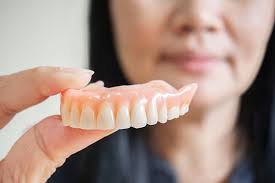Adjusting to dentures may seem overwhelming, but you are not alone. Many people face this challenge with courage. Dentures can impact your speech, but with practice, you can enhance clarity and confidence. This is true whether you’re in California or seeking dental care in Scarsdale. Adaptation takes time. You will find three effective speech exercises right here to aid your transition. These exercises focus on articulation, fluency, and pronunciation. Each one is simple to follow yet powerful in results. Repeat them daily, and you will notice improvement. Remember, patience is key. Speech adaptation doesn’t happen overnight. You are in control, and progress is achievable. Soon, you will express yourself freely and naturally. Let’s explore these exercises, which are designed to bring ease and assurance to your communication. Embrace this new journey, and feel empowered with each spoken word.
Exercise 1: Articulation Drills
Clear articulation is essential for effective communication. Dentures can alter the way you form sounds. Begin by focusing on consonant sounds. Practice words that start with challenging letters like “s”, “t”, and “d”. For example, repeat “sun”, “top”, and “dog” 10 times each.
Once comfortable, move on to sentences. Try saying, “The sun sets in the west” and “Dogs are loyal pets”. Repeat each sentence multiple times. This routine will strengthen your tongue and lips, aiding in clearer speech.
Exercise 2: Reading Aloud
Reading aloud is an excellent way to improve fluency. Choose a favorite book or article. Read a paragraph slowly, focusing on each word. Then, read the same paragraph again at a natural pace. This practice helps you become more aware of your speech patterns.
Consider recording yourself. Playback will highlight areas needing improvement. You can also use resources like National Institute on Deafness and Other Communication Disorders for additional reading materials suited for speech exercises.
Exercise 3: Mirror Practice
Practicing in front of a mirror offers visual feedback. Observe the movement of your lips, tongue, and jaw as you speak. Start with simple words, then proceed to sentences. This method enhances your awareness of articulation.
Try phrases like, “Patience pays off” and “Practice makes perfect”. Consistency in this exercise will gradually boost your confidence and speech clarity.
Comparison of Exercises
| Exercise | Focus | Benefit |
|---|---|---|
| Articulation Drills | Consonant Sound Clarity | Improves pronunciation |
| Reading Aloud | Fluency and Rhythm | Enhances speech flow |
| Mirror Practice | Visual Feedback | Builds confidence |
Tracking Progress
Tracking your progress is motivational. Record your starting point by jotting down areas where you struggle. Reassess each week. Celebrate small victories. Progress builds over time with practice. The Centers for Disease Control and Prevention offers useful insights into oral health that might support your journey.
Conclusion
Patience and consistency are your best allies. Dentures are a part of your life now, but they do not define your voice. You have the tools to make this adjustment easier. Articulation drills, reading aloud, and mirror practice are exercises that empower. Embrace them with determination. Monitor your improvement and stay positive. With time, your speech will reflect your true self. Stay committed, and remember you are not alone in this process. Support is available, and success is within reach. Keep speaking with confidence, and let your voice shine.

